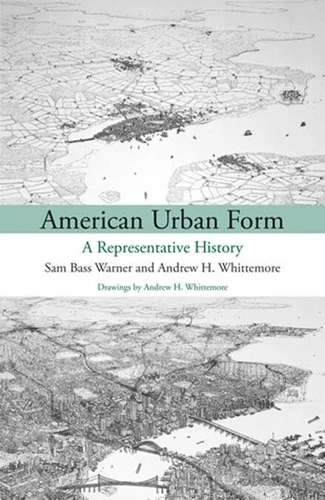American Urban Form. A Representative History
Par : ,Formats :
Disponible dans votre compte client Decitre ou Furet du Nord dès validation de votre commande. Le format ePub protégé est :
- Compatible avec une lecture sur My Vivlio (smartphone, tablette, ordinateur)
- Compatible avec une lecture sur liseuses Vivlio
- Pour les liseuses autres que Vivlio, vous devez utiliser le logiciel Adobe Digital Edition. Non compatible avec la lecture sur les liseuses Kindle, Remarkable et Sony
- Non compatible avec un achat hors France métropolitaine
 , qui est-ce ?
, qui est-ce ?Notre partenaire de plateforme de lecture numérique où vous retrouverez l'ensemble de vos ebooks gratuitement
Pour en savoir plus sur nos ebooks, consultez notre aide en ligne ici
- Nombre de pages200
- FormatePub
- ISBN978-0-262-30092-6
- EAN9780262300926
- Date de parution24/02/2012
- Protection num.Adobe DRM
- Taille22 Mo
- Infos supplémentairesepub
- ÉditeurThe MIT Press
Résumé
An illustrated history of the American city's evolution from sparsely populated village to regional metropolis. American Urban Form-the spaces, places, and boundaries that define city life-has been evolving since the first settlements of colonial days. The changing patterns of houses, buildings, streets, parks, pipes and wires, wharves, railroads, highways, and airports reflect changing patterns of the social, political, and economic processes that shape the city.
In this book, Sam Bass Warner and Andrew Whittemore map more than three hundred years of the American city through the evolution of urban form. They do this by offering an illustrated history of "the City"-a hypothetical city (constructed from the histories of Boston, Philadelphia, and New York) that exemplifies the American city's transformation from village to regional metropolis. In an engaging text accompanied by Whittemore's detailed, meticulous drawings, they chart the City's changes.
Planning for the future of cities, they remind us, requires an understanding of the forces that shaped the city's past.
In this book, Sam Bass Warner and Andrew Whittemore map more than three hundred years of the American city through the evolution of urban form. They do this by offering an illustrated history of "the City"-a hypothetical city (constructed from the histories of Boston, Philadelphia, and New York) that exemplifies the American city's transformation from village to regional metropolis. In an engaging text accompanied by Whittemore's detailed, meticulous drawings, they chart the City's changes.
Planning for the future of cities, they remind us, requires an understanding of the forces that shaped the city's past.
An illustrated history of the American city's evolution from sparsely populated village to regional metropolis. American Urban Form-the spaces, places, and boundaries that define city life-has been evolving since the first settlements of colonial days. The changing patterns of houses, buildings, streets, parks, pipes and wires, wharves, railroads, highways, and airports reflect changing patterns of the social, political, and economic processes that shape the city.
In this book, Sam Bass Warner and Andrew Whittemore map more than three hundred years of the American city through the evolution of urban form. They do this by offering an illustrated history of "the City"-a hypothetical city (constructed from the histories of Boston, Philadelphia, and New York) that exemplifies the American city's transformation from village to regional metropolis. In an engaging text accompanied by Whittemore's detailed, meticulous drawings, they chart the City's changes.
Planning for the future of cities, they remind us, requires an understanding of the forces that shaped the city's past.
In this book, Sam Bass Warner and Andrew Whittemore map more than three hundred years of the American city through the evolution of urban form. They do this by offering an illustrated history of "the City"-a hypothetical city (constructed from the histories of Boston, Philadelphia, and New York) that exemplifies the American city's transformation from village to regional metropolis. In an engaging text accompanied by Whittemore's detailed, meticulous drawings, they chart the City's changes.
Planning for the future of cities, they remind us, requires an understanding of the forces that shaped the city's past.



